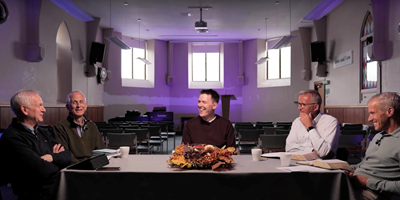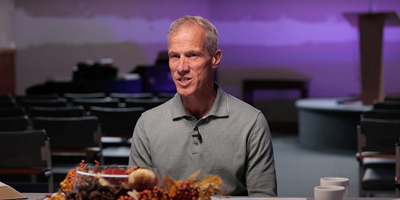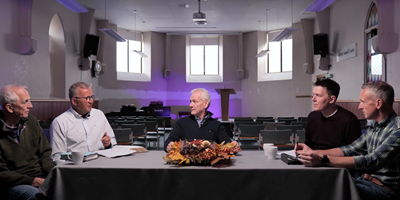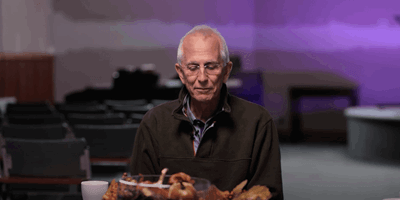Although simple, it does encapsulate the fundamental ethos of the focused athlete or business enterprise. Whatever produces gains is retained and whatever detracts from performance is discarded. The coach or management will insist upon it.
This is the language the Apostle Paul employs when writing to Titus:
“The saying is trustworthy, and I want you to insist on these things, so that those who have believed in God may be careful to devote themselves to good works. These things are excellent and profitable for people” (Titus 3:8 ESV).
This verse, like so many in the Bible, requires the surrounding context to make sense. For example, what saying is trustworthy? What is Titus to insist upon? What does Paul mean by good works?
It is helpful to step back a little and see the flow of thought in the short letter that Titus received from the Apostle Paul while in Crete.
After his opening remarks, Paul reminds Titus of the pressing task that he had left him to complete on the island of Crete. Elders were to be appointed in every town and, due to the presence of “many who are insubordinate, empty talkers and deceivers, especially those of the circumcision party” (Titus 1:10), their task was, in part, to silence and rebuke these deceivers because they were “upsetting whole families by teaching for shameful gain what they ought not to teach” (Titus 1:11 ESV).
Paul uses harsh words for those people who were causing dissension and trouble in the church.
“They profess to know God, but they deny him by their works. They are detestable, disobedient, unfit for any good work” (Titus 1:16 ESV).
Clearly these are not the same people as referred to in our verse (Titus 3:8), who have believed in God and are to devote themselves to good works, but, just as evil works prove you don't know God, good works demonstrate that you do.
Moving into chapter 2, Paul wants Titus to teach the Christians “the kind of living that reflects wholesome teaching” (Titus 2:1 NLT). He gives examples of what that looks like for older men, older women, younger women, younger men, slaves, and masters (2:1-9). Regardless of our age and place in society, we, as believers in Christ, are called to good works. Paul calls this “adorn[ing] the doctrine of God our Saviour” (Titus 2:10). Now we are getting closer to our verse.
Which saying is trustworthy, then?
The saying that Paul refers to is one long sentence near the beginning of chapter 3 (vv.4-7). It is rich in doctrinal detail and one of those long sentences that Paul wrote which demands careful consideration. Each clause in the sentence is rich in gospel truth:
“But when the goodness and loving kindness of God our Saviour appeared, he saved us, not because of works done by us in righteousness, but according to his own mercy, by the washing of regeneration and renewal of the Holy Spirit, whom he poured out on us richly through Jesus Christ our Saviour, so that being justified by his grace we might become heirs according to the hope of eternal life” (Titus 3:4-7 ESV).
Before Paul reaches the profitability of good works, he wants Titus to dwell on these aspects of salvation: regeneration, conversion, justification, adoption, and sanctification. The point is that believing in God is not some vague notion of deism or some impersonal force. A believer has a relationship with God that is based upon the deep foundation of the truths of the gospel. Paul insists upon this to Titus, and he must insist upon it, too, since good works come from good teaching.
The greater the appreciation of our salvation, the greater our desire to pursue good works.
What are the good works Paul is talking about?
Within the context of his letter, Paul asks Titus to do some good works of his own:
“When I send Artemas or Tychicus to you, do your best to come to me at Nicopolis, for I have decided to spend the winter there. Do your best to speed Zenas the lawyer and Apollos on their way; see that they lack nothing” (Titus 3:12-13 ESV).
Titus leaving Crete to come to Paul and helping Zenas and Apollos as they travel will be an example for others to follow. When they see his good works, they will be encouraged to go and do good works themselves:
“And let our people learn to devote themselves to good works, so as to help cases of urgent need, and not be unfruitful” (Titus 3:14 ESV).
Elsewhere Paul encouraged the Christians in the region of Galatia to do good to everyone, but to prioritise the needs of other Christians:
“So then, as we have opportunity, let us do good to everyone, and especially to those who are of the household of faith” (Galatians 6:10 ESV).
Not only is Titus himself to serve, but he is to assist others in serving as well. He is to help Zenas and Apollos on their way. Our good works shouldn’t stop at helping other believers; wherever the opportunity presents itself, we should do good, as Paul wrote to the Galatians. We should say “yes” to practical expressions of kindness, generosity, love, forgiveness, grace, and mercy without prejudice.
Do Your Best
When considering the needs all around us, as well as those further afield, the vast scale of need will almost always dwarf our resources. It is helpful that Paul, even in the two tasks which he assigned to Titus, recognised that there is only so much that we can do. We should not be so overburdened by the needs of others which are far beyond our capacity to meet that we do nothing.
Our compassion should not be restricted by our resources, but our finite resources should certainly regulate our compassionate response.
Paul realises that as much as Titus may try to get to him before winter, it may not be possible. Unexpected circumstances may block his path. Paul knows that, even if Titus does everything in his power to help Zenas and Apollos, they too may face hurdles and obstacles beyond their control that slow them down in their service for the Lord.
Circumstances may hinder us in our efforts to do good works but all we can do is our best in God’s service. Everything else is up to Him.
































